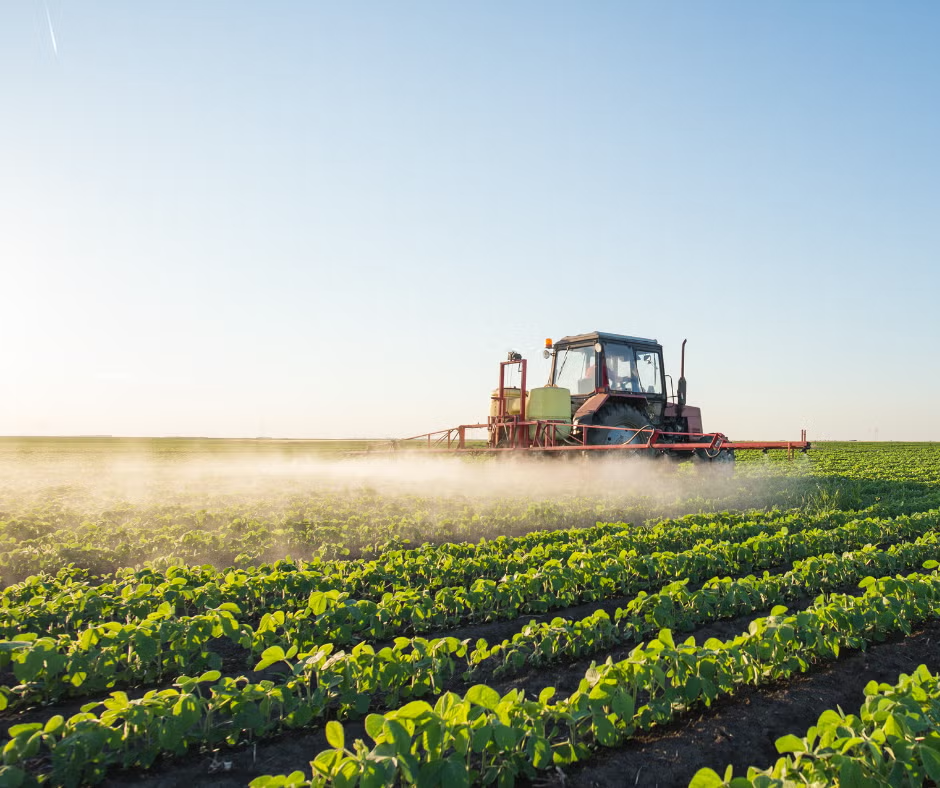Farm Safety

Irrigation Safety – Water and Electricity Working Together
No one will argue that Indiana weather can be unpredictable. A long-term drought could be overtaken by major flooding all in the course of days. During the spring and summer, farmers are growing their crops and rainfall is needed to sustain proper crop growth and development. Because Indiana has different types of soil, irrigation equipment becomes a necessity for many.
Operating pumps and other equipment in a damp environment increases the chance of equipment failure. If farmers themselves are rain-soaked and muddy, their vulnerability to electric shock is much greater. As you’ve heard many times before, water and electricity don’t mix so informing farmers about irrigation equipment safety is imperative.
It's important to note that water and electricity can work together if you follow these safe work practices:
- Proper equipment selection and installation methods – The system should be wired to the standards of the National Electrical Code: it must have disconnect switches; it must use equipment and enclosures suitable for conditions; it must protect wires from physical damage or use “jacketed” irrigation cable; and it must have circuit and equipment grounding.
- Routine maintenance checks – Proactively look for faulty equipment and proper wiring installation.
- Safe work practices – Turn off the power before working on an irrigation system. Be aware of overhead power lines when working with irrigation pipes, when standing on systems and when near spraying water on power lines. Avoid wearing loose clothing and tie back long hair when near rotating equipment.
Your main goal is to not allow yourself to become a path for electricity.
Source: ncdc.noaa.gov, nrcs.usda.gov/Internet/FSE_DOCUMENTS/nrcs141p2_023894.pdf
Electrical safety tips and reminders around agriculture irrigation systems
- Locate electrical disconnects within sight of and within 50 feet of the equipment that turns off the electrical power to equipment.
- Label all switches on the control panel to ensure you can quickly turn off the power if necessary.
- Weatherproof, waterproof and rodent-proof your electrical enclosures/boxes to prevent damage to wires.
- Install electrical grounding hardware like a ground-fault circuit interrupter (GFCI) to prevent electrocution.
- Replace damaged electrical power cords.
- Install protective equipment, like a “jacketed” irrigation cable.
- Practice “lockout/tagout.” Turn the power off and apply a padlock to the controls or switch to indicate someone is working on the system and it cannot be turned back on.
Source: nrcs.usda.gov/Internet/FSE_DOCUMENTS/nrcs141p2_023894.pdf
Electricity isn’t the only irrigation system hazard Here are other common hazards to be aware of when working with an irrigation system:
Falls – The structure is tall enough to injure or kill you if it were to collapse or you were to fall from the top. Always use a properly anchored ladder or other lift device when tending to the system.
Chemical exposure/poisoning – Never drink the water from any system used to apply chemicals and avoid areas of chemical spills around the area.
Water jets – Avoid contact with high pressure water streams coming out of the irrigation system, especially end guns on self-propelled machines. They can cause harm to your eyes, and can cause a fall from the irrigation system.
Entanglement – Do not approach or work around unguarded power take-off shafts, belts and other power transmitting devices. Avoid wearing loose fitting clothing and tie back long hair when around rotating equipment. Never remove vegetation or other materials while it’s moving.
Run overs – Keep vehicles and other equipment out of the path of self-propelled irrigation machines.
Fuel leaks – Sparks from electrical shorts can ignite these fuels or any gas and oil accumulations from leaking storage systems, fuel lines or improper storage containers.
Source: nrcs.usda.gov/Internet/FSE_DOCUMENTS/nrcs141p2_023894.pdf
